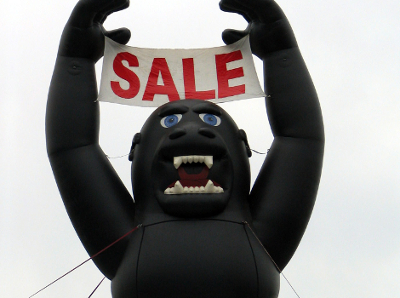
Whether your business is holding a sale, offering seasonal products, or hosting a conference, event media planning can help get the word out to your target audience.
Your strategy for a media buy to promote an event may differ from that of a typical campaign. In part, this is because of its timely nature: an event has specific start and end points, and this can impact how, when, and where you invest your dollars. Also, an event is an experience, and the intangible value this offers your audience can also influence the way you market it.
Event Media Planning and Timing
Capitol Media Solutions helps clients with both ongoing campaigns as well as events. With the latter, we typically recommend starting the campaign closer to when the event takes place.
Why? Marketing an event for a longer period of time will drive up the budget, and usually, it isn’t necessary for your audience to be notified far in advance. The big push should occur shortly before it’s time to take action: buying a ticket, coming into your store, making a purchase online, and so forth.
Still, there are some cases where it might be valuable to start a campaign sooner…
- Your budget is large enough to build brand awareness for months before the event.
- The products or services for sale are a high-involvement purchase decision, and you need to influence that decision over time.
- Your event involves different audiences at different points of time. For example, the way you approach conference sponsors and conference attendees may vary.
Usually, though, our media buying agency advises clients to begin campaigns closer to the event. Four-to-six weeks in advance can be a long enough window to build awareness and drive sales while avoiding the cost of a lengthy campaign.
Choosing Media for Your Event
Media planning is a core focus of our work. We establish our clients’ strategy after getting to know their business, goals, industry, competition, and audience, among other factors. That said, there are some common strategies that may work for your event media planning.
Digital: If your goal is to drive an immediate conversion, like a ticket sale for your conference, a digital media buying campaign may be the way to go. This medium can be particularly useful for targeting a niche community since the audience may use certain websites, read digital editions of industry publications, or have a connection to specific apps, social media, and e-newsletters. Also, the immediate nature of digital data reports means that you or your media planning company can adjust the buy if you aren’t seeing the results you expect.
Print: Print media buying can drive people to your event as well. Only choosing publications with which your audience has an affinity can keep your campaign costs limited while still providing good results. The drawback is that print is less dynamic than digital; your event media planning has to take place far enough in advance to make publishing deadlines, and you may not be able to adjust your buy mid-campaign.
TV and Radio: Very large events that cater to a mass audience might be suited for TV media buying and radio media buying (this approach is more common for B2C marketing.) If you are promoting a sale, you might use your advertisements to drive people to your store or to make purchases online. For ticketed events, TV and radio can promote advanced sales and in-person purchases.
Marketing the Experience
Event media planning isn’t just about driving the largest possible audience to your event. It’s also about generating excitement to make the event a success.
Events are an experience. They should offer value that goes beyond a product or service: value that can only be had by being part of your sale, conference, or happening. Your marketing should offer a taste of this experience.
The creative you use in your advertisements helps accomplish this, and your creative is only limited by how you make your media buy. A couple of examples:
- Larger print placements can give your advertisements more room to make an impression, but a larger placement may cost more and reduce your budget. Your media agency should be able to tell you whether it’s worth having fewer placements to go bigger.
- Digital media can offer a “mini-experience” reflective of your event. Your media buying company can help you identify digital formats and ad units that will allow you to engage your audience.
Setting the stage for what’s to come, delivering your message in the right place, and timing your campaign can all contribute to a more successful event.
If your company is planning a sale, conference, or another event, talk with Capitol Media Solutions about your media buy.
